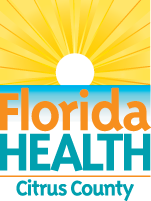Regular physical activity had nearly doubled the cardiovascular benefit in individuals with depression or anxiety, compared with individuals without these diagnoses, according to a study presented at the American College of Cardiology’s 71st Annual Scientific Session.
The research findings add to mounting evidence that exercise improves cardiovascular health by helping to activate parts of the brain that counteract stress. Overall, the study found that people who achieved the recommended amount of physical activity per week were 17% less likely to suffer a major adverse cardiovascular event than those who exercised less. These benefits were significantly greater in those with anxiety or depression, who had a 22% risk reduction vs. a 10% risk reduction in those without either condition.
“The effect of physical activity on the brain’s stress response may be particularly relevant in those with stress-related psychiatric conditions,” said Hadil Zureigat, MD, postdoctoral clinical research fellow at Massachusetts General Hospital and the study’s lead author. “This is not to suggest that exercise is only effective in those with depression or anxiety, but we found that these patients seem to derive a greater cardiovascular benefit from physical activity.”
Rates of both depression and anxiety have risen during the COVID-19 pandemic, and heart disease remains the leading cause of death in the U.S. The study findings underscore the important role of exercise in maintaining heart health and reducing stress, according to the researchers.
For the study, researchers analyzed health records of more than 50,000 patients in the Massachusetts General Brigham Biobank database. Just over 4,000 of the patients had suffered a major adverse cardiovascular event, which included experiencing a heart attack, having chest pain caused by a blocked artery or undergoing a procedure to open a blocked artery in the heart.
Researchers first assessed the rates of major coronary events among patients who reported in a questionnaire that they exercise at least 500 metabolic equivalent (MET) minutes per week—aligning with the ACC and American Heart Association primary prevention guideline recommendation of at least 150 minutes of moderate intensity exercise per week—with those who exercise less. MET-minutes are a unit of exercise that represents the amount of energy expended during various activities. The analysis revealed that people who got at least 500 MET-minutes or more per week were 17% less likely to suffer an adverse cardiovascular event.
They then analyzed how this pattern played out among patients who had a diagnosis of depression or anxiety compared with those who did not have depression or anxiety. This second analysis revealed that patients with depression derived more than double the benefit from exercise in terms of reduced cardiovascular risk compared with people who did not have depression. A similar benefit of exercise was found for patients with anxiety.
The research expands upon previous studies by the research team that used brain imaging to determine how exercise improves cardiovascular health by helping to keep the brain’s stress response in check. Individuals with depression or anxiety have higher stress-related neural activity and a higher risk of cardiovascular disease.
“When one thinks about physical activity decreasing cardiovascular risk, one doesn’t usually think of the brain,” Zureigat said. “Our research emphasizes the importance of the stress-related neural mechanisms by which physical activity acts to reduce cardiovascular risk.”
Even though the study used 500 MET-minutes as a cutoff for the analysis, researchers noted that previous studies show people can reduce their heart disease risk even if they do not achieve the recommended amount of physical activity. Even a little bit of regular physical activity can make a difference in terms of cardiovascular risk.
“Any amount of exercise is helpful, particularly for those with depression or anxiety,” Zureigat said. “Not only will physical activity help them feel better, but they will also potently reduce their risk of cardiovascular disease. It can be hard to make the transition, but once achieved, physical activity allows those with these common chronic stress-related psychiatric conditions to hit two birds with one stone.”
For more information on active and mindful living to prevent or manage heart disease, visit CardioSmart.org/assets/infographic/active-and-mindful-living.
Zureigat will present the study, “Cardiovascular Benefit of Exercise is Greater in Those with Anxiety and Depression,” on Saturday, April 2, at 10:00 a.m. ET / 14:00 UTC in Prevention and Health Promotion Moderated Poster Theater 4, Hall C.
ACC.22 will take place April 2-4, 2022, in Washington, DC, bringing together cardiologists and cardiovascular specialists from around the world to share the newest discoveries in treatment and prevention. Follow @ACCinTouch, @ACCMediaCenter and #ACC22 for the latest news from the meeting.
The American College of Cardiology envisions a world where innovation and knowledge optimize cardiovascular care and outcomes. As the professional home for the entire cardiovascular care team, the mission of the College and its 54,000 members is to transform cardiovascular care and to improve heart health. The ACC bestows credentials upon cardiovascular professionals who meet stringent qualifications and leads in the formation of health policy, standards and guidelines. The College also provides professional medical education, disseminates cardiovascular research through its world-renowned JACC Journals, operates national registries to measure and improve care, and offers cardiovascular accreditation to hospitals and institutions. For more, visit ACC.org.
###
Disclaimer: AAAS and EurekAlert! are not responsible for the accuracy of news releases posted to EurekAlert! by contributing institutions or for the use of any information through the EurekAlert system.








